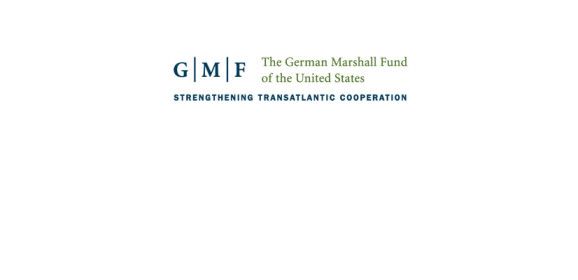Section: The German Marshall Fund of the United States (USA)
U.S. & EU Views on Ukrainian Presidential Election 2019
Ukrainians will vote in the second round of presidential elections on April the 21st. The two candidates – current president Petro Poroshenko and showman and political novice Volodymyr Zelenskiy are campaigning hard to win over undecided voters. To discuss this and how the U.S. and E.U view these elections, we are joined in the studio today...
Ukraine’s Presidential Gamble
Ukrainians are a revolutionary, not evolutionary people. That was confirmed in the first round of the presidential election on March 31, when out of a record number of 39 candidates, a political neophyte and comedy actor received twice as many votes as the incumbent president. The result of the second round on April 21 is hard to predict. Most...
The Future of NATO: New Challenges and Opportunities
Editor’s Note: On April 2, Dr. Evelyn Farkas, senior fellow at the German Marshall Fund of the United States, delivered testimony in front of the U.S. House of Representatives Committee on Foreign Affairs, on the future challenges and opportunities for NATO ahead of the alliance’s 70th anniversary. Chairman Keating, Ranking Member...
NATO At 70: A Strategic Partnership For The 21st Century
Editor’s Note: On April 2, Dr. Karen Donfried, president of the German Marshall Fund of the United States, delivered testimony in front of the U.S. Senate Committee on Foreign Relations on the value of NATO ahead of the alliance’s 70th anniversary. Chairman Risch, Ranking Member Menendez, and other members of the committee: Thank you...
An Increasingly Serious Black Sea Player
“The United States has proven its commitment to the security of the Black Sea region, and it has supported the newer NATO members in their efforts to focus the attention of the alliance on their needs.” – Alina Inayeh With Romania and Bulgaria joining the alliance in 2004, bringing up to three—with Turkey—the number of littoral member...
Transatlantic Security Cooperation Toward 2020
Introduction Internal and external challenges have reshaped the transatlantic security partnership in an unprecedented way since the election of Donald Trump in 2016. He has accelerated the evolution in U.S. leadership that had begun during the presidency of Barack Obama and also questioned his country’s traditional alliances in a new way....
Ukraine’s Glass is Half-Full—Giving Up on it Would Be a Terrible Mistake
Transatlantic TakeAs Ukraine goes to the polls on Sunday to elect its president for the second time since the 2014 Revolution of Dignity, some in Europe and the United States appear to be ready to give up on the country. This would be a grave mistake at a critical juncture for Ukraine. It has made more headway than pessimists claim in addressing...
Europe and the Liberal Order
Current debates on world order and its liberal subset largely elide the role of Europe, treating it as a bystander, a battleground or a source of problems. Insofar as Europe is cast as a global player, some have advocated retrenchment and narrowly defined interests, others neutrality and accommodation. Yet, as the liberal order is fraying, Europe...
Marshall Memorial Fellowship Reflections: Amy Lee
At every point in the Marshall Memorial Fellowship, we were privileged to meet with key leaders, either elected to high office or who earned senior decision-making roles. It was comforting, at first, to realize the extraordinary level of competence they had acquired while tackling issues as complex and fraught as Brexit, and as massive as...
Improving EU-U.S. Cooperation in Civil Society Support in Eastern Europe and the Western Balkans
The European Union and the United States devote considerable funds and programs to supporting civil society in Eastern Europe and the Western Balkans – support that is being confronted with old and new challenges. Closing civic space is now entrenched in many countries and the means to undermine civic actors has become more sophisticated. The...



